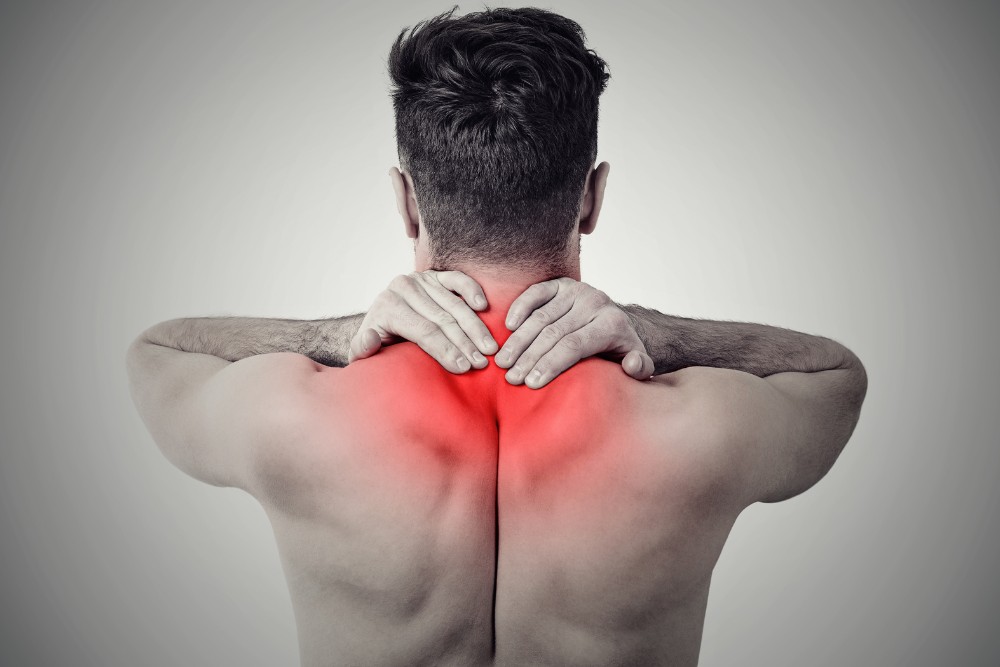3 Reasons for Back and Neck Pain After Sleeping
Many people experience back and neck pain after sleeping. However, such discomfort usually goes away once you get out of bed and move around. Morning pain often results from the way you sleep, which can put pressure on nerves or disrupt circulation. Changing your sleeping position may relieve those morning pains.
Of course, damage to the spine or some chronic conditions could cause back and neck problems. Physical therapy may improve the issue by building muscle, increasing flexibility, and reducing pain. Your medical team matches exercises to your condition to ensure the most promising results. The following issues should also be avoided for more comfortable mornings.

Back and Neck Pain After Sleeping
Studies show that disturbed sleep frequently causes neck pain, with higher disturbances increasing your discomfort. Your pillow’s design, material, and height are also associated with morning pain, as are sleeping positions and mattress support. But why exactly do these issues cause such morning pain? The following sections cover the most common reasons.
Spinal misalignment
According to experts, the pillow you use may cause spinal misalignment associated with back and neck pain after sleeping. When the pillow is too high, the neck flexes upwards, causing spinal compression and muscle pain. Too-thin pillows offer no support, letting the head sag on the neck, increasing discomfort and stiffness.
Your sleeping position may also alter spinal alignment. Stomach sleeping straightens your spine’s natural curve, increasing pressure on back muscles. You’re also required to turn your neck to breathe, further altering spinal alignment.
Side sleeping with varying leg heights increases hip and back pressure, while a tight fetal position excessively curves the spine. While back sleeping is best for alignment, leg and arm positioning alter your spine’s curves and risk morning pain.
Pressure on the nerve roots
The position you sleep in not only affects alignment. It could also increase pressure on the back and neck, causing pain after sleeping. For instance, back sleeping puts 50 pounds of pressure on your spine and back, which increases the risk of morning discomfort.
Curling your knees up towards your chest while side sleeping distributes body weight unevenly. The excess pressure could compress the nerves in the hips, back, shoulders, and neck, causing pain and stiffness.
Your mattress may also contribute to nerve pressure. An old one lacks the necessary support, allowing your body to sink in where it shouldn’t. A new mattress may be too soft or too firm for your sleeping position, putting excess pressure on your body.
Restricted blood flow/muscle tightness
Proper circulation sends oxygen, nutrients, and other vital components to every cell in the body. It also removes waste from the cells, ensuring they function properly. When circulation is compromised, you’ll experience muscle pain in various areas of the body.
Your sleep habits could contribute to circulation issues. In some positions, pressure points occur on the body, compressing one or more blood vessels. Doing so slows or stops blood flow, resulting in back and neck pain after sleeping.
Poor or old mattresses may have bulges or sags that could create pressure points. Extra-firm mattresses don’t conform to the body. Instead, they push against it, constricting the vessels, which results in uncomfortable mornings.
Resources:
- PubMed, May 16, 2022, Sleep disturbance is associated with neck pain: a 3-year longitudinal study after the Great East Japan Earthquake
https://pubmed.ncbi.nlm.nih.gov/35578231/ - PubMed, April 19, 2021, The effects of pillow designs on neck pain, waking symptoms, neck disability, sleep quality and spinal alignment in adults: A systematic review and meta-analysis
https://pubmed.ncbi.nlm.nih.gov/33895703/ - HSS, Sleeping with Neck Pain: Advice from a Pain Specialist
https://www.hss.edu/health-library/move-better/sleeping-with-neck-pain - Spine Health Foundation, March 15, 2024, Sleeping and the Spine
https://spinehealth.org/article/sleeping-and-the-spine/ - Keck Medicine of USC, June 28, 2025, The Best – and Worst – Sleep Positions for Back Pain
https://www.keckmedicine.org/blog/the-best-and-worst-sleep-positions-for-back-pain/ - Sleep Foundation, Aug. 14, 2025, Why Does My Lower Back Hurt When I Wake Up?
https://www.sleepfoundation.org/physical-health/waking-up-with-lower-back-pain - Cleveland Clinic, Poor Circulation
https://my.clevelandclinic.org/health/diseases/21882-poor-circulation - Cacvi, July 20, 2025, The Best Sleeping Positions for Managing peripheral Artery Disease
https://cacvi.org/best-sleeping-position-for-peripheral-artery-disease/
This article is for educational and informational purpose only and does not substitute for professional medical advice. For any questions about your own health condition, speak to a qualified physician or healthcare provider.







Leave A Comment